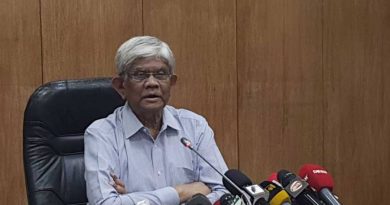Bangladesh’s textile sector is regaining momentum as mandatory 40 percent local value addition for US-bound exports and tariff relief spur fresh demand, while domestic policy support strengthens production.
Industry insiders say the new compliance rules are revitalizing backward linkage industries, creating opportunities for local yarn and fabric producers. Under the US reciprocal tariff scheme, products using at least 20 percent US-origin components will enjoy duty exemptions on that portion, prompting mills to expand cotton imports from the US.
Two local factors are also driving the rebound—improved gas supply for industries and the government ban on yarn imports through land ports, which has reduced foreign dependence. Customs data confirm a steady fall in yarn imports since the ban.
Kutubuddin Ahmed, founder-chairman of Envoy Textiles Ltd, noted that the requirement for higher local value addition and sourcing US raw materials is attracting investment into spinning and textile mills, creating jobs. His company, which exports 60 percent of its denim fabrics to the US, has already secured full-capacity orders until December. Envoy plans to raise its share of US cotton imports to nearly 60 percent from the current 15 percent.
“We are in talks with a US supplier to import 250 tonnes of cotton, considering the tariff issue,” Ahmed said, adding that the new trade arrangement could expand Bangladesh’s market presence in the US. He, however, warned that India and China may shift focus to Europe and other destinations, intensifying competition.
MA Rahim, vice chairman of DBL Group, said the industry is now running at full capacity thanks to smoother gas supply. “We recently met ministry officials who assured us LNG imports will be increased within the next two to three months,” he said. Though August and September remain lean months, he expects demand to pick up in October following tariff clarity, especially as a steep 50 percent duty has been imposed on Indian exports to the US.
Echoing the optimism, NZ Group Managing Director Salehuddin Jitu said energy supply has improved since Eid, though order confirmations from European buyers were delayed amid tariff uncertainty. He warned of uneven competition if India and China divert exports to other markets, while also pointing to domestic banking troubles that are delaying export receivables and creating liquidity problems.
Shams Mahmud, managing director of Shasha Denims Ltd, acknowledged better energy supply in recent weeks but stressed the urgency of energy security. “If large industries resume production, disruptions may return. Without strong measures, we may fail to capitalize on the opportunity,” he said.






